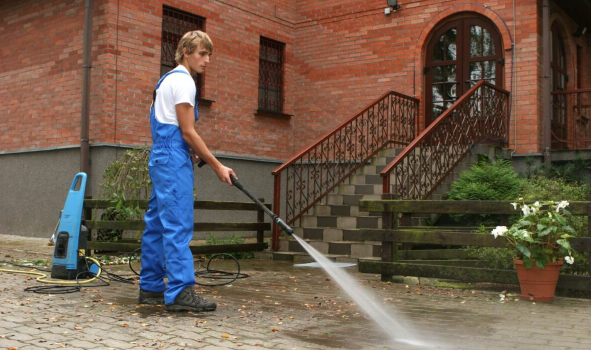Maintaining Your Beautiful Landscape: Seasonal Care and Maintenance Tips
Any homeowner would be proud of their well-kept garden or outside area. It gives a calm haven, improves the appearance of your house, and serves as a blank canvas for artistic creativity. However, it’s crucial to devote time and energy to seasonal care and upkeep if you want your landscape to look its best all year long. We’ll go over the significance of seasonal landscape care, offer helpful advice for every season, and give a quick overview of how hiring a professional landscaper can help you keep your outdoor haven beautiful.
Seasonal Landscape Maintenance’s Significance
The dynamic undertaking of landscaping presents new opportunities and problems with every passing season. Maintaining your landscape properly will guarantee that it stays alive, healthy, and aesthetically pleasing all year long. Reasons why seasonal landscape maintenance matters:
Health and Growth of Plants
Seasons have an impact on the growth and dormancy of plants. Sufficient maintenance during every season encourages robust development, amplifies blossom production, and extends the life of your plants.
Management of Insects and Diseases
Frequent maintenance enables you to quickly identify and treat disease outbreaks and pest infestations. It’s critical to act quickly to safeguard your plants and stop problems from getting worse.
Adjustment to Environment
By performing seasonal care, you can help your landscape adjust to shifting weather patterns, temperature swings, and solar exposure.
Visual Appeal
Your landscape will have a different aesthetic appeal for each season. You may enhance your garden’s aesthetic appeal and create a dynamic outdoor space by attending to its specific requirements throughout the year.
Tips for Seasonal Landscape Maintenance
Now let’s examine the particular upkeep and care duties to take into account for every season:
Spring Tasks (March through May)
- Pruning
Prune shrubs, perennials, and dead or overgrown branches.
- Weeds
Get rid of them before they become established.
- Fertilizing
To promote growth, use a balanced fertilizer.
- Mulching
Replace your mulch to keep it moist and prevent weed growth.
Look for indications of pest activity and take care of any problems you find.
- Planting
To revitalize your landscape, add fresh flowers and plants.
- Advice
Prioritize Preparing the Soil for Upcoming Plants
After they bloom, prune bushes that bloom in the spring.
Summer Tasks (June to August)
- Watering
Make sure to water deeply and consistently, especially during dry spells.
- Deadheading
To promote ongoing flowering, remove spent blooms.
- Pest Control
Keep an eye out for pests and take appropriate action.
- Grass Care
Take care of any brown patches on the grass by routinely mowing it.
- Fertilizing
To maintain plant development, apply a slow-release fertilizer.
- Advice
In the morning, use water to reduce evaporation.
Steer clear of intensive trimming in the summer.
Fall Tasks (September to November)
- Raking
To avoid suffocating your lawn, maintain regular leaf removal.
- Aeration
To strengthen the soil and roots of your grass, core aerate it.
- Fertilizing
For root development, use a fertilizer designed specifically for fall.
- Planting
For the blooming of the following year, plant trees, shrubs, and bulbs.
- Mulching
To insulate plants in the winter, apply a layer of mulch.
- Advice
Watering shouldn’t stop until the earth freezes.
Plant bulbs that bloom in the spring, such as daffodils and tulips.
Winter Tasks (December through February):
- Pruning
For shape and health, trim dormant trees and shrubs.
- Snow Removal
Make sure there is no snow or ice on driveways or walkways.
- Examine for Damage
Look for signs of winter damage and take necessary action
- Winterizing
Cover fragile plants with burlap or similar material.
- Advice
Steer clear of severe trimming in the winter.
To avoid damaging plants, use caution while applying salt or deicers close by.
Skilled Landscaping Services for Continual Upkeep
Even though many homeowners take great pleasure in maintaining their yards, there are occasions when hiring Deeter landscaping can be quite helpful. Here are some ways that experts can help you keep up your lovely landscape:
Proficiency
Professionals in landscaping have the know-how to evaluate your landscape’s particular requirements, such as soil quality, plant health, and pest control. They are able to create a custom maintenance schedule.
Time Efficient
Landscape maintenance can take a lot of effort, particularly if you have a big yard. By saving you time and effort, professional services let you enjoy your outside space without worrying about ongoing maintenance.
Seasonal Modifications
Landscapers are capable of modifying maintenance duties to account for the nuances of seasonal care. They are aware of when to fertilize, trim, or shield plants to maintain their beauty and health all year round.
Resolving Issues
In the event that problems such as pest infestations, disease outbreaks, or drainage challenges emerge, experts can identify and resolve them efficiently, averting more harm.
Design Improvements
In addition to care, landscapers can offer design recommendations that will improve your landscape’s appearance and usefulness. Experts can assist you in realizing your concept, whether it involves incorporating fresh aspects or reinventing preexisting ones, learn more here.
To sum up, seasonal landscape care is essential to maintaining the wellness and aesthetic appeal of your outside area all year round. You can design a garden that thrives in all seasons with the right care and attention, but each season has its own set of chores and problems. Although many homeowners do their own landscape upkeep, hiring a professional landscaping firm can save you time, money, and provide experience that can be especially useful as your garden develops and grows. For years to come, your landscape may be a source of pride and delight if you invest in seasonal upkeep and professional help when needed.






